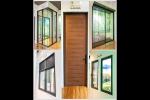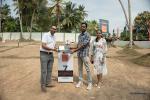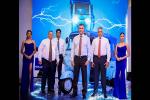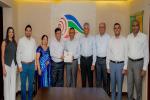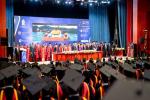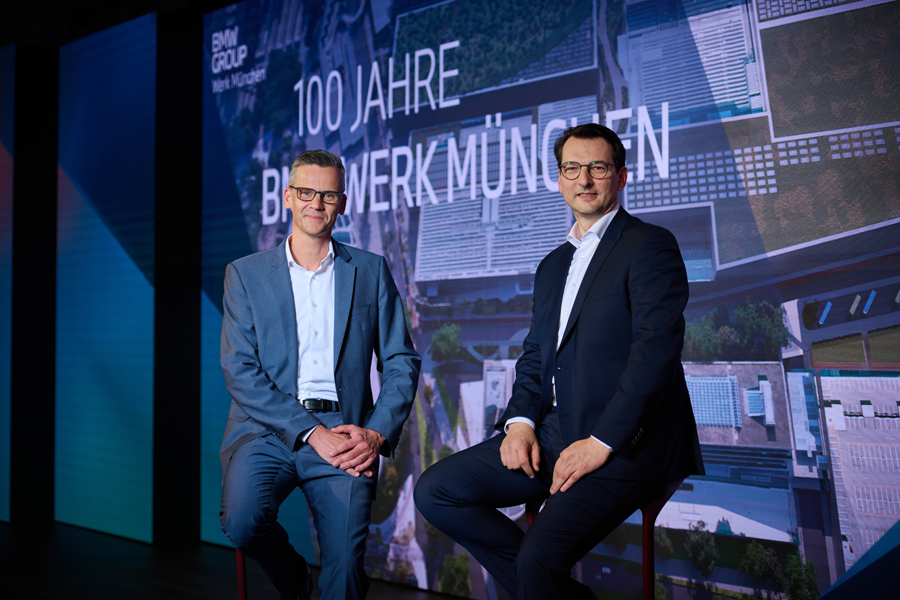The company has been manufacturing its products as “Bayerische Motoren Werke” at the site in the Milbertshofen district since 1922.
At an event to mark the anniversary, CEO Oliver Zipse emphasized how:
“Our home plant – right in the heart of the metropolis that is Munich – has defied the elements of time.
Because there have always been people who kept this site moving, always with the right instinct for the times and, above all, with a clear view to the future.”
Lord Mayor Dieter Reiter spoke of a “strong commitment to Munich as a business hub.”
It all started with aircraft engines and motorcycles.
Then, from 1952, the plant moved on to start producing cars, which are still famous the world over to this day, including the iconic BMW Isetta, racing legends such as the M3 and, since 1975, the most successful of all BMW models: the BMW 3 Series.
“Our roots are in Munich. This plant is our origin. And our future,” said Milan Nedeljković, Member of the Board of Management for Production at BMW AG: “It’s a high-tech production site.
Around 900 top-quality BMWs leave this plant every day.
Five different models with all types of drive.
This proves the high flexibility, but also the vast breadth of experience and skills of the people who work here.
They are the driving force behind everything that happens here.”
In its 100th anniversary year, the Munich plant is impressively demonstrating the leading role it plays in the age of electromobility.
The all-electric BMW i4, for example, already makes up a quarter of the production volume – and rising: “The demand among our customers for the new BMW i4 is enormous – so we’re ramping up production even further.
Next year already, every second vehicle leaving the Munich plant will be fully electric.
Going by current plans, that means more than 100,000 BMW i4s from the heart of Munich for customers all over the world,” announced Oliver Zipse, with Milan Nedeljković adding: “This means that, by 2023, our home plant will already have achieved the BMW Group’s global goal for 2030, namely to increase our proportion of BEVs to 50 percent”.
“The introduction of the BMW i4 was an impressive feat of integration into an existing production system, and demonstrates the plant’s enormous capacity for transformation,” Plant Manager Peter Weber added.
“Within less than five years, we have evolved from only producing combustion engines to producing hybrids and the fully electric i4.
This means that we now manufacture five different models with all the different drive types on one production line.
This shows that this factory truly understands transformation and is the embodiment of change and flexibility.”
In conjunction with the BMW Group’s Research and Innovation Center (FIZ), the Munich plant has always served as an internal center of excellence, disseminating knowledge about processes and technologies, as well as the experience gleaned from 100 years of engine and vehicle production to other plants around the world.
Examples of this innovative prowess include producing the first series of the fully electric MINI E, the iconic Z8, and the electric special edition of the BMW 1602 for the Summer Olympics in 1972.
Not to mention Project i, culminating in the revolutionary BMW i3, which also originated at the Munich plant.
The Munich plant’s strong position as a paragon of the BMW Group’s production network, now and in the future, is demonstrated by its transformation into an iFACTORY – the strategic master plan devised by BMW Group Production, emphasizing ‘lean’, ‘green’ and ‘digital’.
Production Board Member Nedeljković: “The BMW iFACTORY epitomizes what we are aiming for with our production in the future and is setting new standards.
We are implementing them globally, in all our plants – here in Munich as well as in our new plant in Debrecen, Hungary.”
The Munich plant’s structure is also undergoing transformation.
The site of the former paint shop is being converted into a new body construction facility, and from 2024 the company will be constructing a completely new assembly to produce the all-electric ‘Neue Klasse’ on the site of the current engine-building facility.
“This will keep the Munich plant competitive and ensure it remains a forward-looking production site,” emphasized Plant Manager Peter Weber.
Lord Mayor Dieter Reiter highlighted the fact that the plant has continued to evolve in parallel with the residential urban area that surrounds it and has remained a valuable employer:
“The BMW parent plant in Munich has played a particularly significant role in BMW’s success story, which spans over 100 years.
It has produced pioneering vehicles – such as the Neue Klasse in the 1960s and the 3 Series – which were instrumental in making the company a success,” said Reiter at the anniversary event.
“As a result, I am all the more pleased that BMW plans to develop its home plant in an innovative and sustainable way according to its ‘urban production’ motto, taking into account the industry’s transformation toward electromobility and digitalization.
This is a strong commitment to Munich as a business location and to securing and creating jobs in our city in the long term.
I would like to thank the company for this endeavor and offer my sincere congratulations on the 100th anniversary of BMW’s first plant,” Reiter added.
The mayor also discussed the results of the recently concluded architecture competition “BMW Munich – Urban Production”, which the company launched in fall 2021 in partnership with the state capital Munich.
The aim was to capitalize on the plant’s unique location in the city center.
This will involve making the whole complex visibly more accessible and open to its neighbors.
The two winning offices, OMA from Rotterdam and 3XN from Copenhagen, decided on a joint endeavor to further develop their designs, and presented this concept to a high-caliber jury last week.
Their vision for the future of production at the BMW Group plant in Munich will now be used to develop a new master plan.
With this master plan, as well as the structural optimizations already in the works, the Munich plant will focus on the BMW iFACTORY principles LEAN. GREEN. DIGITAL.
Together, these principles ensure that this special site – the BMW Group’s century-old parent plant – will have maximum flexibility, excellent processes and outstanding integration capacities over the coming decades.




